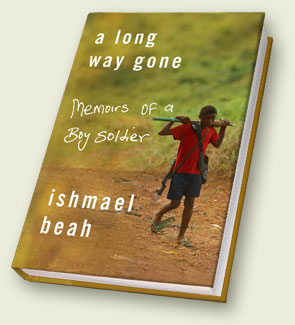I was especially interested in the segment on preventing childhood deaths. This is a big deal to me. Some days I wake up and look at my one-year-old daughter and feel overcome with gratitude that she is still here with me; I often feel hyper-conscious of the nearly 11 million children who die before reaching the age of five every year. That's 29,000 children a day (21 children every second) who die, mainly of preventable causes. Every one of those children is as real and warm and tangible to their parents as my daughter is to me. This graph (from the letter) gives a breakdown of the causes of these childhood deaths:

As you can see in the graph, more than half of the child deaths are caused by diarrheal diseases and dehydration, pneumonia and malaria. All these illnesses are preventable and treatable. Sometimes Westerners are surprised to hear about the gravity of diarrhea, in particular, in less-developed regions of the world, but for children who are undernourished and continually exposed to risk factors (like unclean water supplies) these diseases can be death sentences.
Here's some good news: Child mortality rates is one area where great progress has been made over the past 50 years. Here's another graph from Bill Gates' letter:

Amazing, right? The rate of childhood deaths has been cut in half, thanks to fifty years of hard work by many individuals, communities, organizations and entities. What this statistic says to me is that we have the technology and experience to completely eliminate preventable childhood deaths. Diarrheal dehydration can be eliminated when communities have access to clean water supplies, when breastfeeding is encouraged, and when simple rehydration strategies are employed for children who have diarrhea. Pneumonia can be prevented through adequate nutrition and improved sanitation, and the treatment for pneumonia is well-established, which makes it a question of making that treatment easily accessible for all the world's families. And malaria can be prevented with the use of treated mosquito nets and antimalarial medications, as well as vector control. Treatment for malaria exists but needs to be made more widely available in order to save more people's lives.
One of my favorite initiatives to decrease child mortality rates is UNICEF's "I Believe in Zero" campaign. The idea is that with adequate resources and political will, we can improve distribution of existing technologies to ensure that ZERO children die of preventable diseases. Visit the website to sign a petition to President Obama, donate to the cause, and recruit your friends and associates (by putting a collection canister on your desk at work, or putting a banner or widget on your website or Facebook page, or getting the word out to your local media).
Please click here to sign a petition indicating your support for a Presidential Initiative to Accelerate Child Survival.
Then click here to access information about the Global Child Survival Act (introduced in the House and the Senate, H.R. 2266 and S. 1418). From the website you can send letters to your Senator and Representative.
And while you're at it, why not click here to access information about a host of other children's issues that you can become involved in? The U.S. Fund for UNICEF website makes it easy to lobby your officials and speak our on issues that are important to you because they are important to children.
I believe in zero. I hope you do, too.










